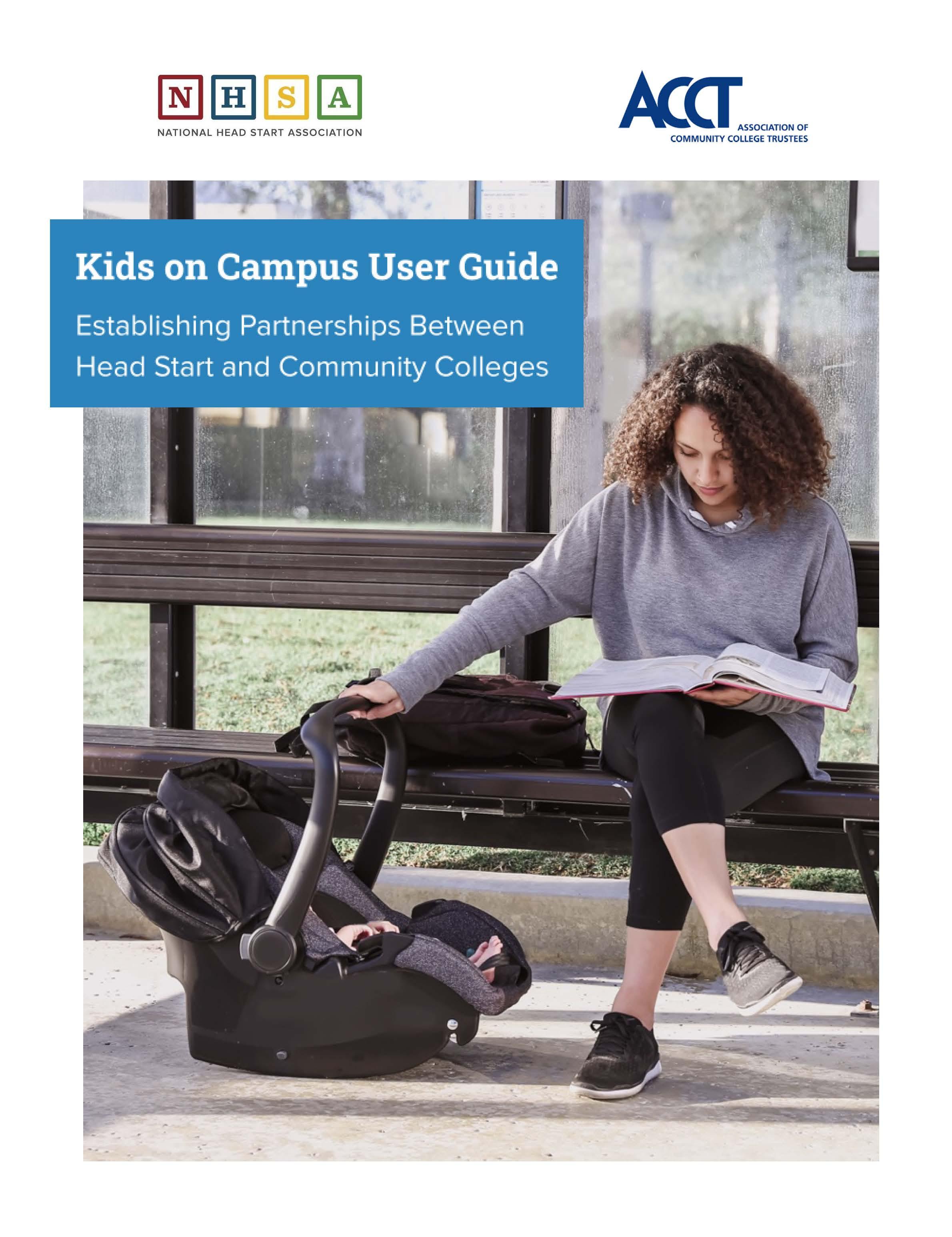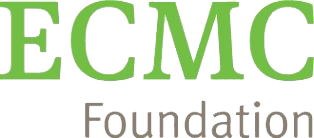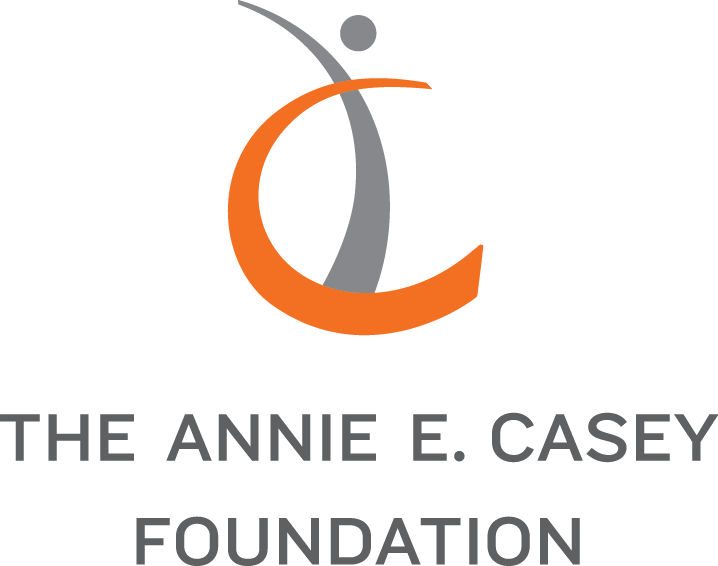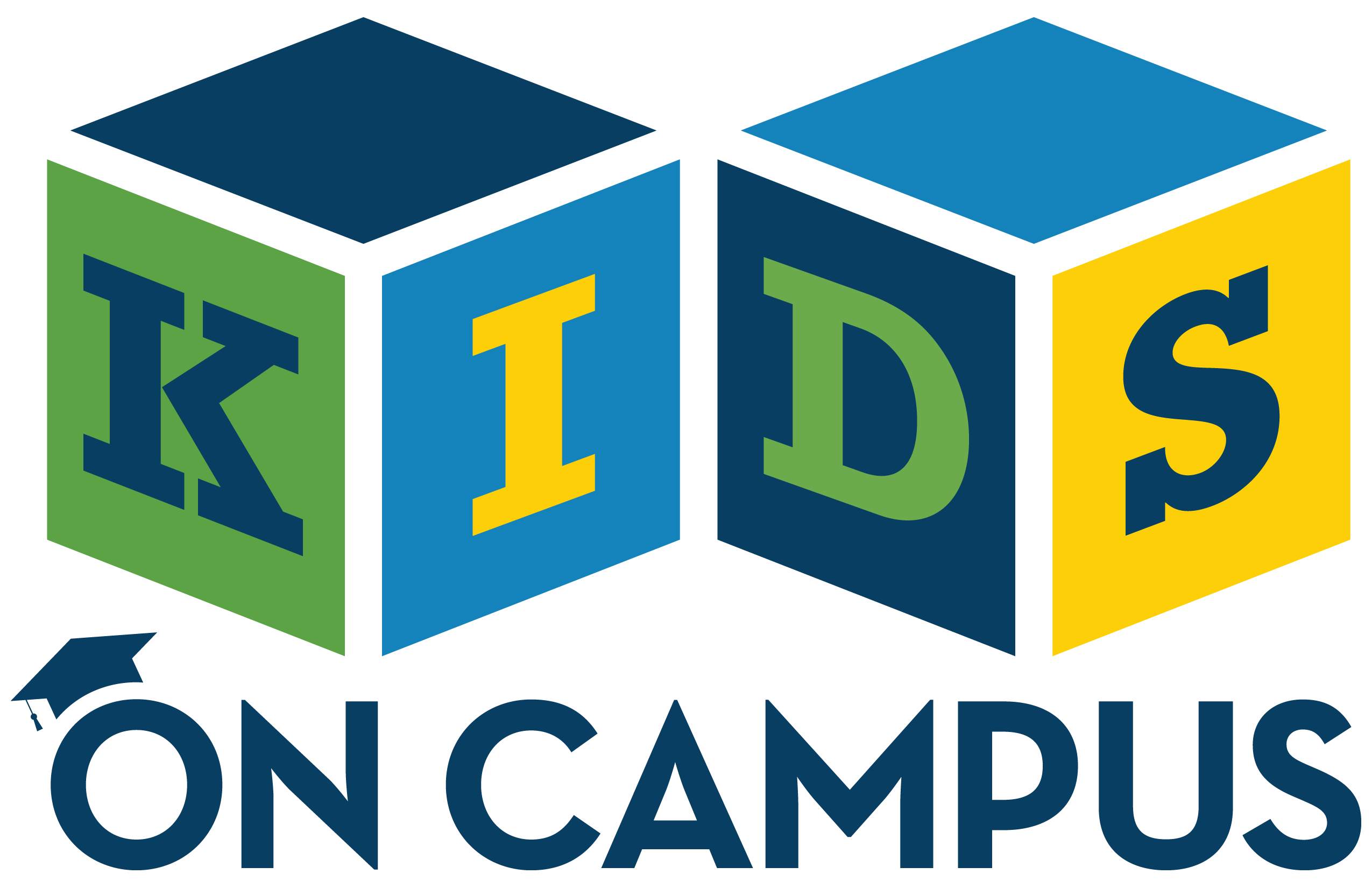
ACCT, NHSA Launch Kids on Campus Partnership to Expand Child Care for Student Parents
New five-year initiative will support student parents by bringing more Head Start centers to community college campuses throughout the country.
WASHINGTON, D.C., February 6, 2024 — Today, the Association of Community College Trustees (ACCT), along with partner National Head Start Association (NHSA), announce the launch of the Kids on Campus initiative to bring more Head Start programs to community college campuses. The launch takes place during the 2024 Community College National Legislative Summit at the Marriott Marquis in Washington, D.C. Six foundations have joined together to provide funding for this five-year project.
Read the full press release here.
On-Campus Childcare Landscape
A chronic shortage of affordable on-campus childcare leaves student parents – especially single mothers – struggling to meet a basic need necessary for pursuing post-secondary education. The long-term benefit of obtaining post-secondary education is well understood by parents, but the reality of the lack of affordable childcare solutions is often a barrier.
Nearly 1 in 10 U.S. undergraduate students are single mothers, nearly all of whom have incomes at or near the poverty line. Though students’ children may be eligible for Head Start preschool services, fewer than 100 community college campuses have Head Start centers on-site. At the same time, Head Start programs are struggling with enrollment and workforce issues, leaving up to 180,000 federally-funded childcare slots unfilled. Even if parents meet income requirements for programs such as Head Start which opens the door to childcare access, there can still be challenges when it comes to accessing the facilities.
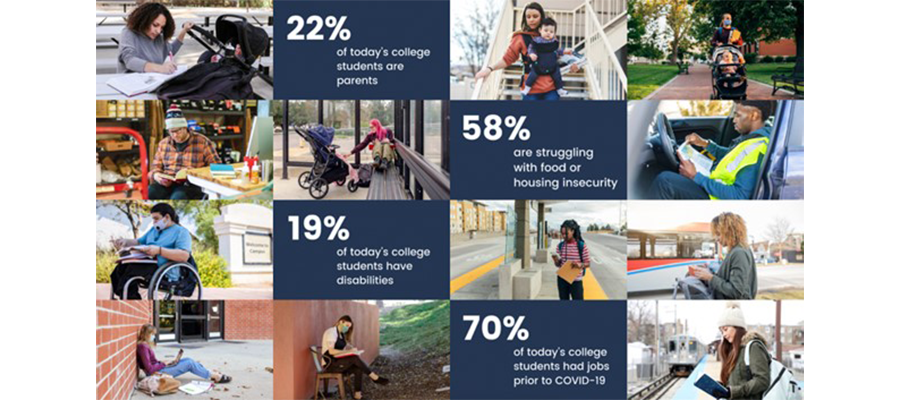
Source: Seldin/Haring-Smith Foundation
Project Overview
The Association of Community College Trustees (ACCT) and the National Head Start Association (NHSA) are partnering in a five-year project to achieve the goal of increasing the number of Head Start programs co-located on community college campuses. The joint project offers a practical, commonsense approach to solving challenges in both sectors:
- Qualifying student parents receive free, high quality child care and early education for their families from the Head Start program.
- Colleges obtain an expert partner to operate on-site child care from Head Start, which also has the ability to apply funding to retrofit buildings on campus.
- Head Start programs are located near their target populations and receive free or drastically reduced rent, which can be used as an in kind donation toward their required 20% match of federal funds – which many programs struggle to do.
- Head Start families have an option to enroll in the college and may even receive support from Head Start to do so, if receiving a GED or credential is part of their family goals.
- Many programs of study on community college campuses – from early childhood to medical and dental assistants to culinary and HVAC – have the opportunity to partner with Head Start to provide the program with services of students in a work-learning partnership.
The resources provided on this site began as a result a 2023 planning grant that drew from focus groups, surveys, meetings, and site visits with currently active partnerships, those desiring partnerships, and those attempted partnerships but hit roadblocks. As the project progresses, we will be updating the existing resources along with adding new ones.
For those interested in learning more or engaging in next steps, please complete our engagement form below and look for regular updates as we move through the next phase of the project.
Kids on Campus User Guide
The Kids on Campus User Guide is designed to support community colleges and Head Start programs in connecting, negotiating, and launching a successful partnership. This user guide was created from insights we gained from lessons learned on current partnerships, roadblocked partnerships, and organizations that are interested in establishing partnerships. Although each partnership is unique, the partnership process for each on-campus Head Start and community college partnership follows the same primary steps.
Access the User Guide
Engage with the Initiative
Interested in engaging with the Kids on Campus Initiative, sharing your institution's experiences as a current Head Start partner, or becoming a Head Start partner. Sign up here to engage with the Kids on Campus Initiative. Thank you for your interest and support!
Sign Up to Engage With Us
Community & Technical College Campuses with Onsite Head Start Centers
The map above indicates existing co-located community college and Head Start partnerships and will be updated as new partnerships are established. This was produced by the National League of Cities' Civic Mapping Initiative in partnership with the Association of Community College Trustees and the National Head Start Association. Primary data sources are (1) the Civic Mapping Initiative's CASL (Campus and Satellite Location) dataset for community & technical colleges and (2) Head Start location data available from the Department of Health and Human Services. In cases where multiple head start centers are located at the same location, the first location in the dataset is reported for each map marker. Map created in February 2024 using data from late 2023.
Resources
Institute for Women's Policy Research | Investing in Single Mothers’ Higher Education
National Head Start Association | Head Start United: Removing Barriers to Access for Children and Families
Latest Posts
February 6, 2024 | ACCT, NHSA Launch Kids on Campus Partnership to Expand Child Care for Student Parents
September 13, 2023 | Establishing New Partnerships: Head Start and Community Colleges
September 8, 2023 | Building Partnerships Between Community Colleges and Head Start
August 31, 2023 | Building a New Partnership for Community Colleges: The Desire to Partner with Head Start Programs
March 15, 2023 | New Partnership Launches to Plan Free, High Quality Early Learning on Community College Campuses
Press Highlights
NPR | The new kids on campus? Toddlers, courtesy of Head Start
Inside Higher Ed | 'Matchmaking' Community Colleges and Head Start
Inside Higher Ed | Community Colleges to Get More Head Start Centers
The Chronicle of Higher Education | Campus Child Care Has Become Less Available. A New Partnerships Aims to Change That.
The Washington Post | Head Start centers in community colleges can change the child-care equation
Contact For More Information
For questions about the Kids on Campus initiative contact:
Steve Jurch, Associate Vice President, Center for Policy and Practice
